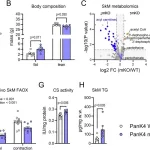Perth, Australia – A new study from Edith Cowan University (ECU) has found that anti-junk food advertisements can effectively reduce cravings and consumption intentions, particularly among individuals with healthy BMIs, when shown during popular sports broadcasts.
The research, published in the Health Promotion Journal of Australia, analyzed the impact of junk food and anti-junk food ads during Australian Football League (AFL) and National Rugby League (NRL) matches on over 400 participants.
“Junk food brands are capitalizing on the massive viewership of these sports to relentlessly promote their products,” said Dr. Ross Hollett, lead researcher. “However, health-promoting messages are virtually absent, creating a significant imbalance.”
The study revealed that while a single exposure to a junk food ad had minimal impact on immediate cravings or consumption intentions, anti-junk food ads demonstrated a noticeable positive effect.
“This highlights the potential of utilizing these high-profile broadcasts to deliver important health messages to a wide audience,” Dr. Hollett emphasized.
The study also underscored the stark disparity in advertising: junk food ads accounted for 10.8% of all ads during the analyzed broadcasts, while anti-junk food ads were virtually non-existent, representing only 0.003%.
Dr. Hollett called for increased government investment in health messaging during sports broadcasts. “These broadcasts offer a unique opportunity to reach millions of Australians,” he said. “Given the effectiveness of anti-junk food ads, governments should prioritize funding for these messages during programs that heavily promote junk food.”
The study’s findings have significant implications for public health policy and the regulation of food advertising during popular sporting events.
Source: Edith Cowan University











